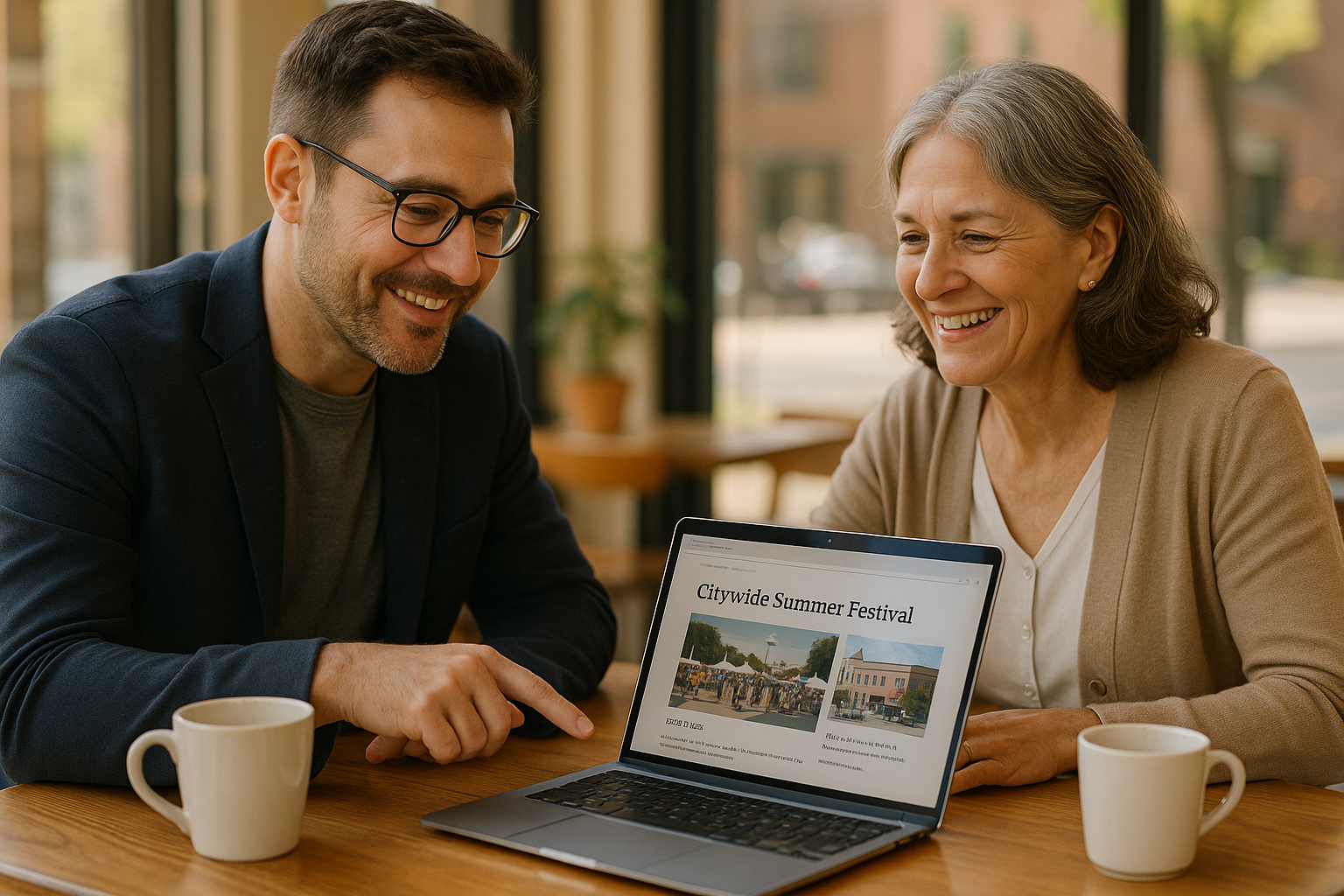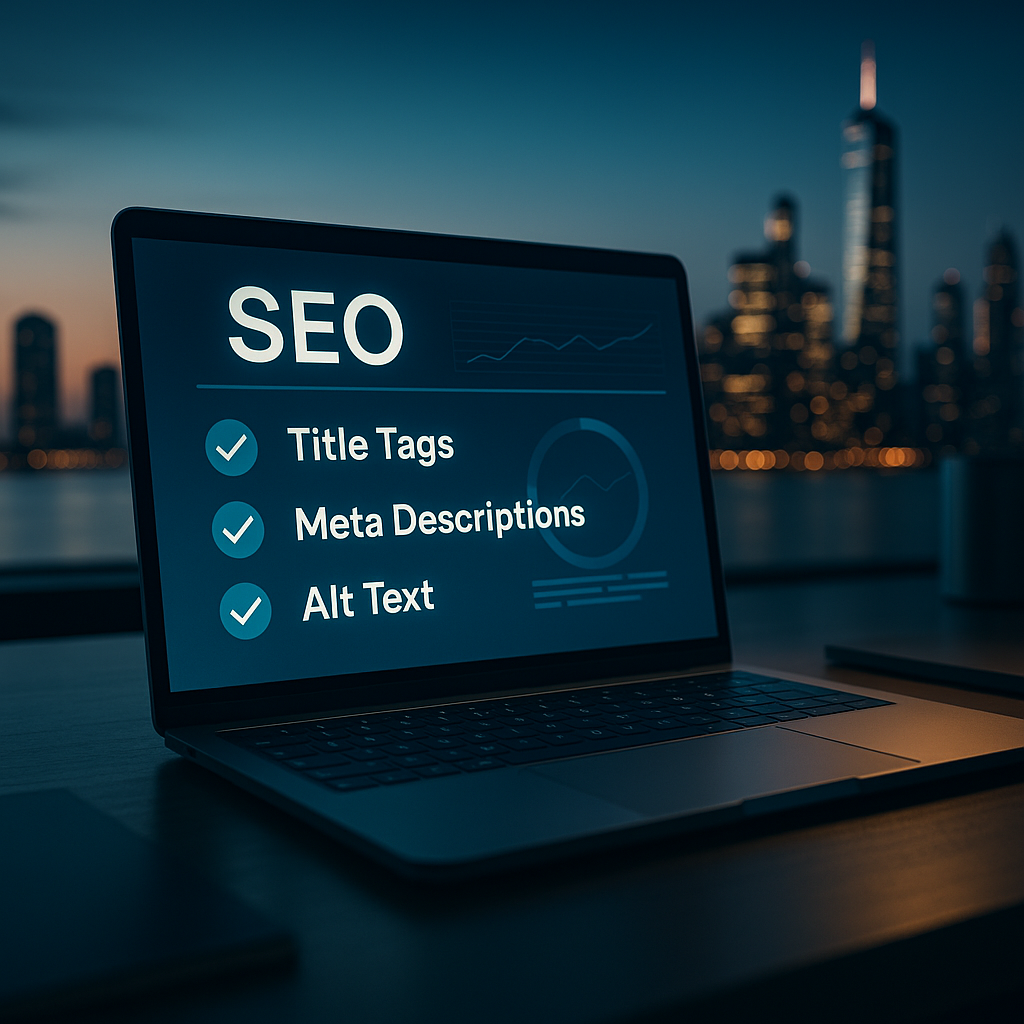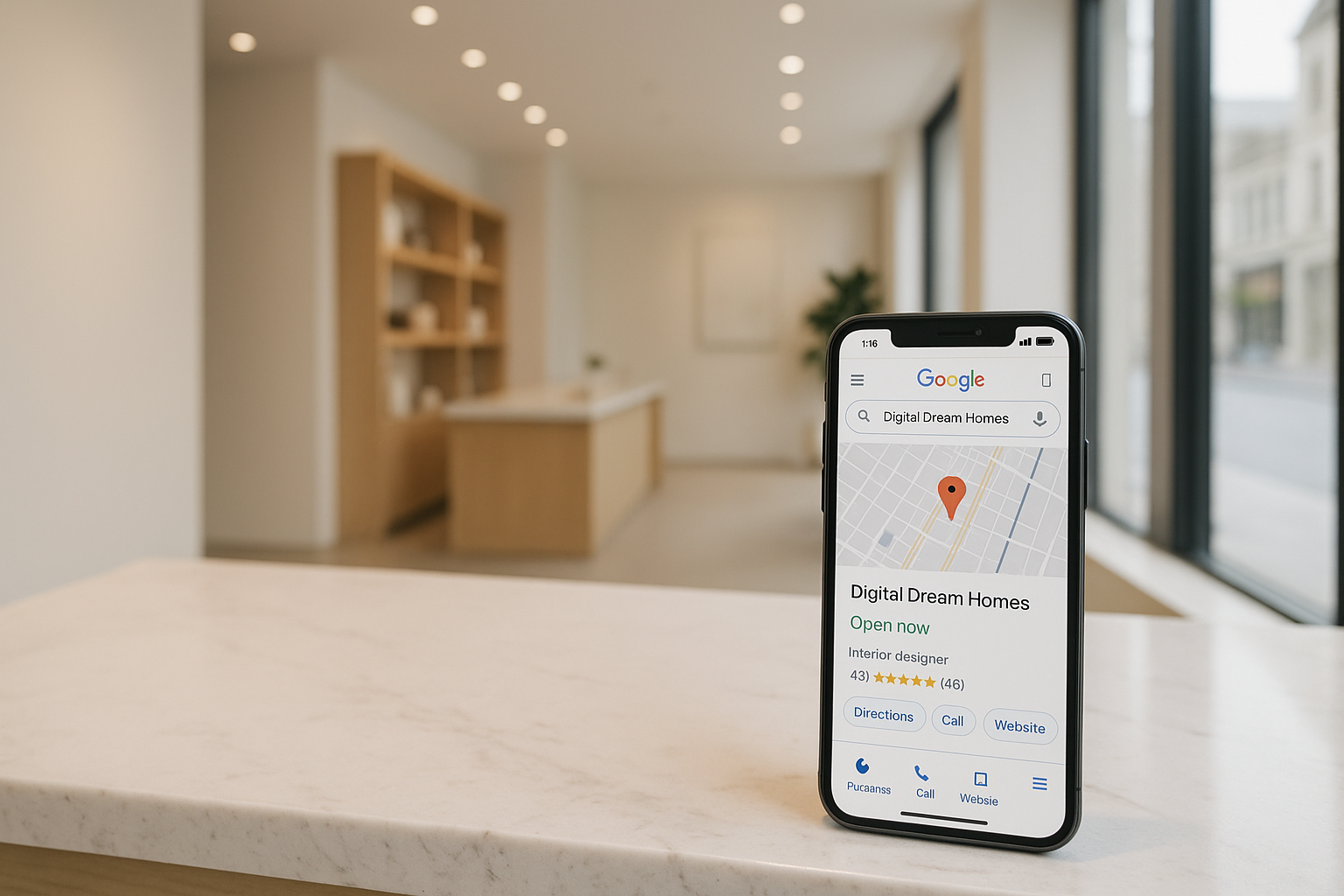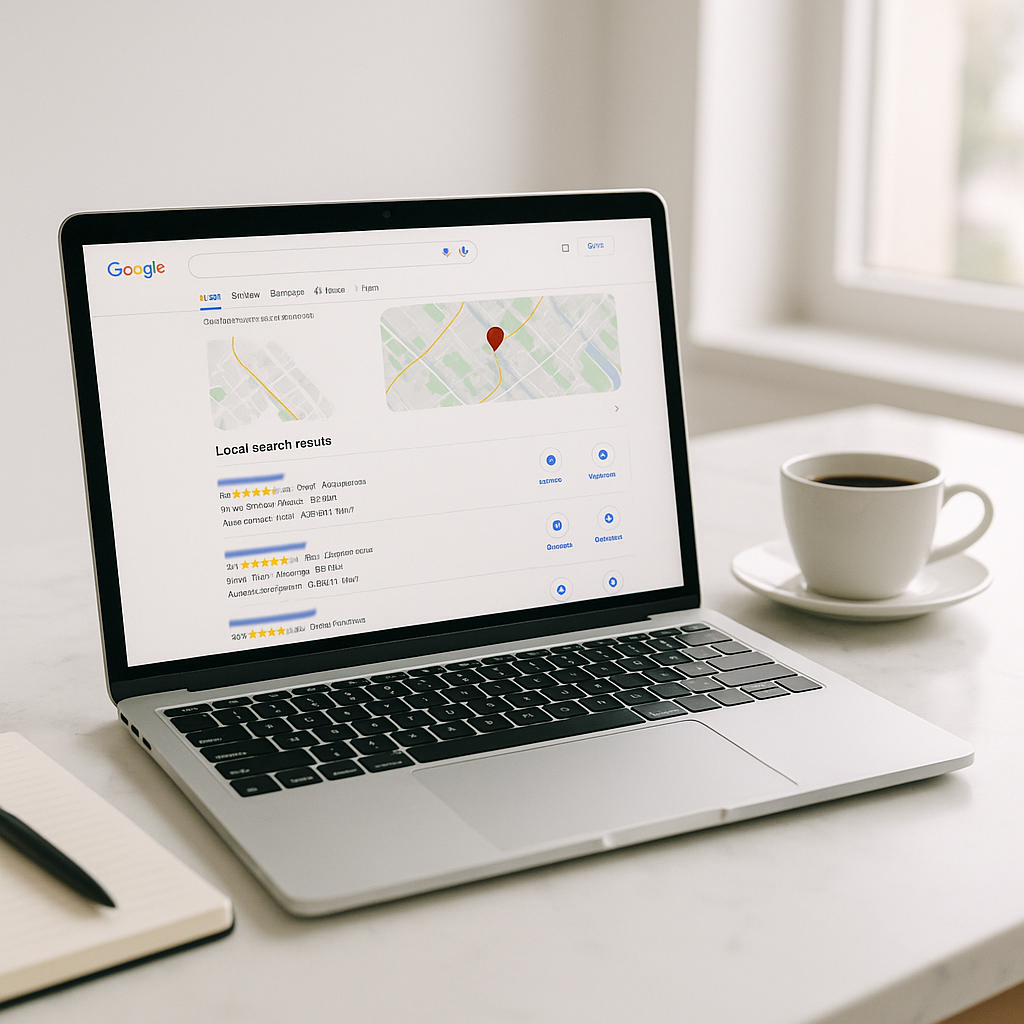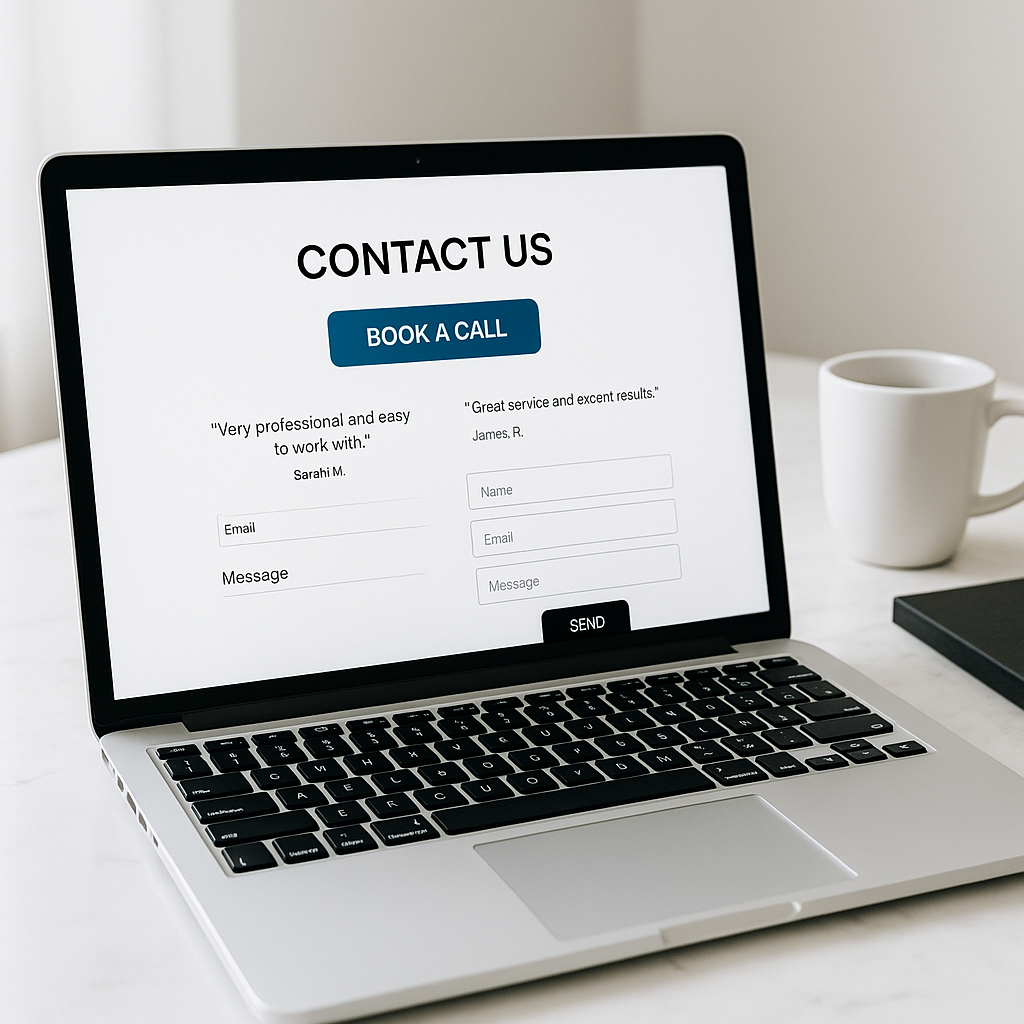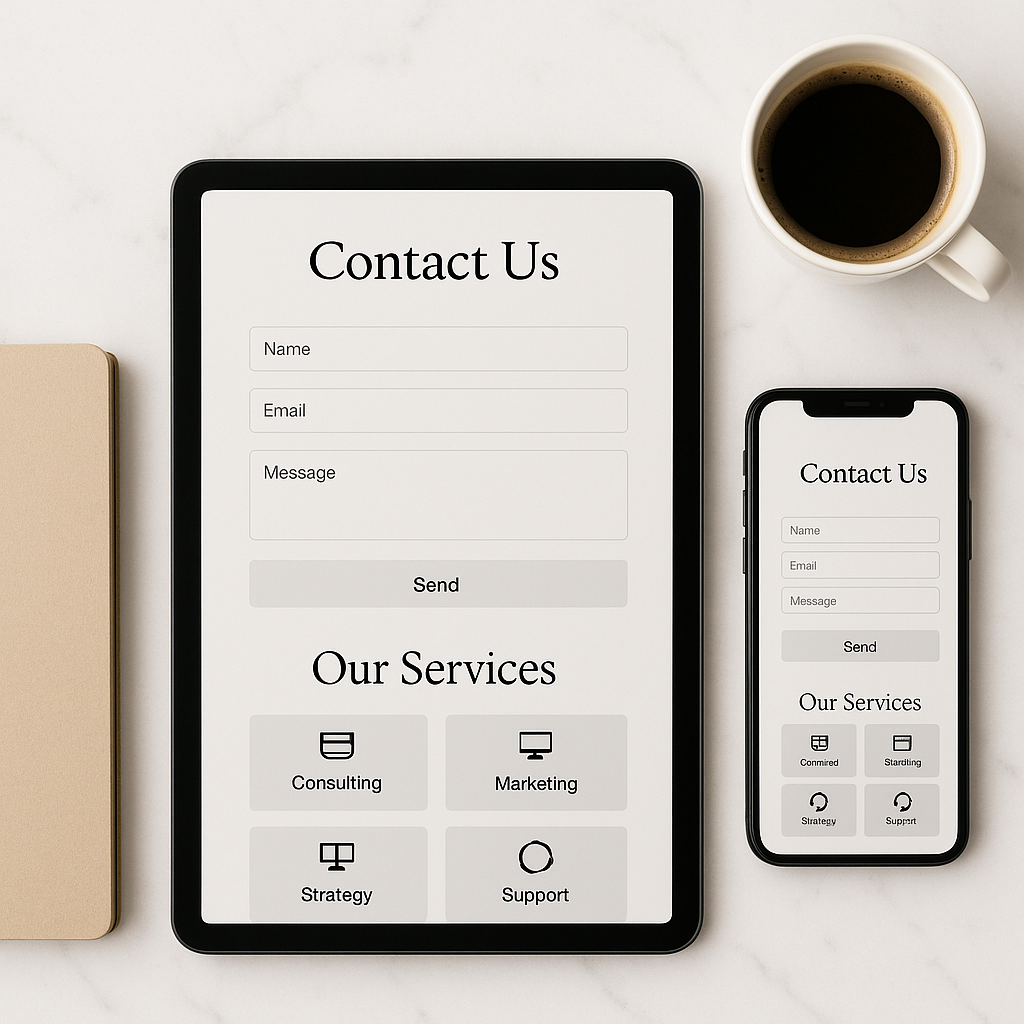Real Estate Website Homepage Tips That Actually Work (And Look Amazing Too)

Your homepage is the digital front door of your real estate business. And just like a beautiful curb appeal sets the tone for an in-person showing, your website homepage needs to grab attention, make people feel welcome, and guide them toward taking action.
At Digital Dream Homes, we specialize in building luxury real estate websites that don’t just look pretty — they convert. So today, we’re diving into practical, powerful, and totally doable real estate website homepage tips that will help you turn more visitors into leads (and more leads into closings).
Let’s make your homepage your best-performing real estate asset.
1. Above the Fold: Make Your First Impression Count
The top section of your homepage is what visitors see without scrolling. This is prime real estate. Pun fully intended.
Here’s what to include above the fold:
A bold headline that explains what you do and who you help
A professional photo or video background (we love a drone shot of a gorgeous listing)
A clear call-to-action (CTA) like “Browse Homes,” “Get Your Home Value,” or “Schedule a Call”
Your branding — logo, colors, and font — should be consistent and intentional
Pro Tip: The best agent websites we build use a high-converting hero section with a lead magnet or value hook. Want to see what that looks like? Check out our post on bold homepage layout tips for realtors (you’ll find that in Best Website Layout for Realtors).
2. Lead Capture Is a Must (Not a Maybe)
You didn’t just build a website to show off your latest listing. You built it to grow your business. That means collecting leads.
Effective homepage lead capture strategies include:
A home value tool (“See what your home is worth — instantly”)
A free guide or checklist (like “10 Steps to Selling for Top Dollar”)
A popup or sticky bar with a compelling offer
Embedded IDX search, making it easy for buyers to start exploring listings right away
We went deep into this in our blog on how to capture seller leads with a home value tool — definitely worth the read if you’re focused on sellers.
3. Add Real Social Proof
Today’s buyers and sellers want to know they can trust you. That’s where social proof does the heavy lifting.
Your homepage should include:
Client testimonials (bonus points for video or headshots)
Logos of brokerages, publications, or awards
Stats like “Over 200 homes sold in the Tri-State Area” or “$75M closed in 2024”
If you need fresh inspiration, check out our post on social proof ideas for realtors to make this part of your homepage pop without feeling cheesy.
4. Make Navigation a Breeze
Your homepage sets the tone, but it should also serve as a launchpad for the rest of your site.
That means your menu should be:
Simple and scannable (no more than 5–7 items)
Sticky (so it stays visible when users scroll)
Clear in language (“Find a Home,” “Meet [Your Name],” “Get Your Home Value”)
Avoid generic links like “Blog” or “Services” unless those pages are gold. Instead, think of what your clients want most and name your tabs accordingly.
Want to see a homepage that flows like melted butter? Look at our real estate website conversion tips article where we break down exactly how to lead people through your site like a pro.
5. Tell Them Why You’re Different
You are not a cookie-cutter agent. So your homepage shouldn’t feel like one either.
Use this space to showcase:
Your unique value proposition (Why should someone list or buy with you?)
Your local expertise (“Specializing in luxury homes across Bergen County”)
Your mission or what drives you (“Helping families find their forever homes”)
This helps you connect with the right audience — and repel the wrong ones. And it helps you win listings from sellers who are tired of generic service.
Check out branding tips for solo agents if you’re unsure how to differentiate yourself online without feeling self-promotional.
6. Feature Your Latest Listings or Areas Served
A homepage without listings is like a restaurant menu with no food. If you’ve got active listings, they deserve a spot on the homepage.
Options include:
Featured listings with beautiful photo previews and quick links
A map view showing your territory or service areas
A “Browse by City or Neighborhood” section
This not only shows off your inventory, it also improves SEO and helps visitors self-select based on location.
Speaking of SEO, don’t forget to check out real estate SEO best practices to make sure your homepage isn’t invisible to Google.
7. Add a Personal Welcome Message (Seriously)
This one’s simple, but often skipped.
Somewhere near the middle of your homepage, add a warm, short welcome message from you — not your assistant, not your logo, you.
Something like:
“Hi, I’m Sarah, your local real estate expert serving the Charlotte Metro area. I’m here to help you make your next move with confidence and clarity.”
Bonus if you include a friendly photo or short video.
Visitors stay longer when they feel like they know you. Trust is everything in real estate — and it starts with a smile and a welcome.
8. Don’t Forget Mobile Optimization
More than 60% of real estate website traffic comes from mobile devices. If your homepage isn’t mobile-friendly, you’re losing leads before they even get to your listings.
Here’s what to watch for:
Is the text readable without zooming in?
Do buttons and CTAs work easily on a phone?
Does your site load quickly? (Speed is an SEO factor too)
Is the layout responsive and uncluttered?
At Digital Dream Homes, we build mobile-first — because in today’s world, mobile isn’t optional. It’s essential.
9. SEO-Optimize Without Sounding Like a Robot
Yes, we care deeply about SEO. But your homepage isn’t just for bots — it’s for humans.
Here’s how to strike the balance:
Use your target keyword phrase naturally (in this case, “real estate website homepage tips”)
Add relevant city or neighborhood names for local SEO
Include image alt text and internal links (like we’ve done throughout this blog)
Write in a conversational, friendly tone that sounds like you
Need help optimizing without going full robot? Our post on keyword research for real estate agents breaks it down step-by-step.
10. End With a Call to Action (Always)
Don’t just thank people for visiting. Tell them what to do next.
Great homepage CTAs for realtors include:
“Find Out What Your Home is Worth”
“Search Local Listings”
“Book Your Free Consultation”
“Start Your 60-Day Free Website Trial” (wink wink)
Your CTA should be visible, specific, and repeat a few times on the page — especially near the top and bottom.
Want an example of how this all works together? Visit one of our demo sites or peek at our breakdown of the best IDX plugins for WordPress, which pairs beautifully with high-converting homepage strategies.
Ready to Turn Your Homepage Into a Lead-Gen Machine?
Your homepage isn’t just a digital brochure. It’s a tool. When done right, it becomes your hardest-working salesperson, quietly converting browsers into buyers and visitors into listing appointments.
If you’re ready to build or upgrade your real estate website homepage, Digital Dream Homes is here to help. We don’t do cookie-cutter. We do custom-built, high-converting, luxury-style websites designed to attract more clients and boost your credibility online.
Book a free consultation today and let’s build something amazing together.
Because your homepage deserves to be as legendary as your listings.
Matt Pieczarka
Want a Free Website Audit?
Fill out your information below and we will send you a personal screen share video of tips on how to make your actual website better!
Backlinks for Small Business Websites: Why Backlinks Matter for Local Businesses
Backlinks for Small Business Websites: Why Backlinks Matter for Local Businesses If you want more customers finding you on Google, you need backlinks for small business websites. P
On-Page SEO Checklist for Small Business Websites
On-Page SEO Checklist for Small Business Websites If you want more local customers to find you, you need an on-page SEO checklist small business owners can actually use. This guide
Google Business Profile Setup for Small Business: The Beginner’s Guide
Google Business Profile Setup for Small Business: The Beginner’s Guide If you want to show up on Google when customers nearby search, you need google business profile setup for s
Local SEO for Small Businesses: Tips for Small Business Owners
Local SEO for Small Businesses: Tips for Small Business Owners If you want to show up when nearby customers search, you need local SEO for small businesses. The good news is that m
How to Create a “Contact Us” Page That Actually Gets Results
Contact Page Optimization for Small Business: How to Create a “Contact Us” Page That Actually Gets Results If you want more calls, emails, and bookings, contact page optimizati
Mobile Friendly Website Tips For Small Business
Mobile Friendly Website Tips For Small Business: Mobile Optimization Tips for Local Business Websites If you need mobile friendly website tips for small business, you are in the ri
Why Your Website Isn’t Bringing in Leads
Why Small Business Websites Fail: Why Your Website Isn’t Bringing in Leads If you’ve ever wondered why small business websites fail, you’re not alone. Many owners invest in a
Best Website Colors For Small Business Branding
Best Website Colors For Small Business Branding: How to Choose the Right Colors for Your Brand Choosing the best website colors for small business branding is not just a design cho
Simple Website Design Tweaks That Boost Small Business Credibility
How to Make Small Business Website Look Professional: Simple Design Tweaks That Boost Small Business Credibility Want quick, high-impact ways to look trustworthy online? If you’v

